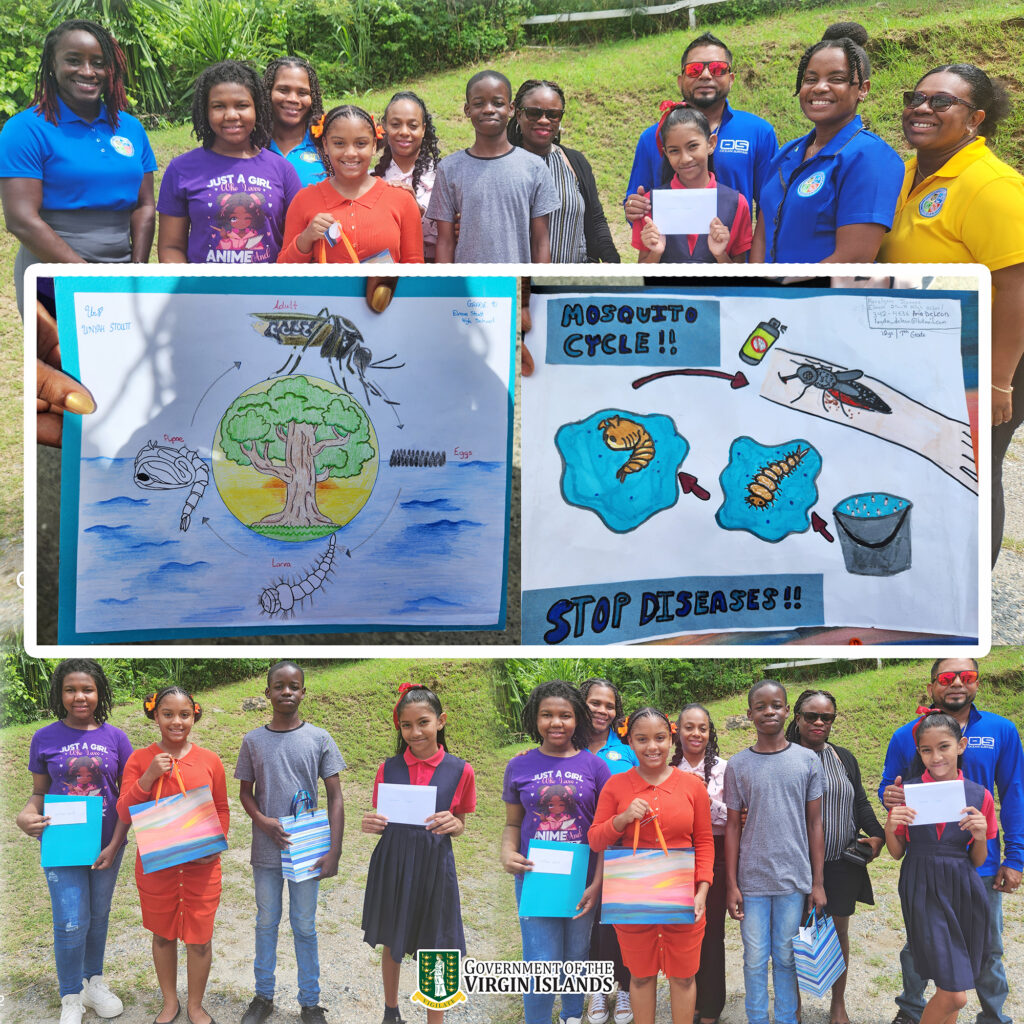Local News
Emancipation Today is About Protecting Our Rights as a People: A BVI Perspective
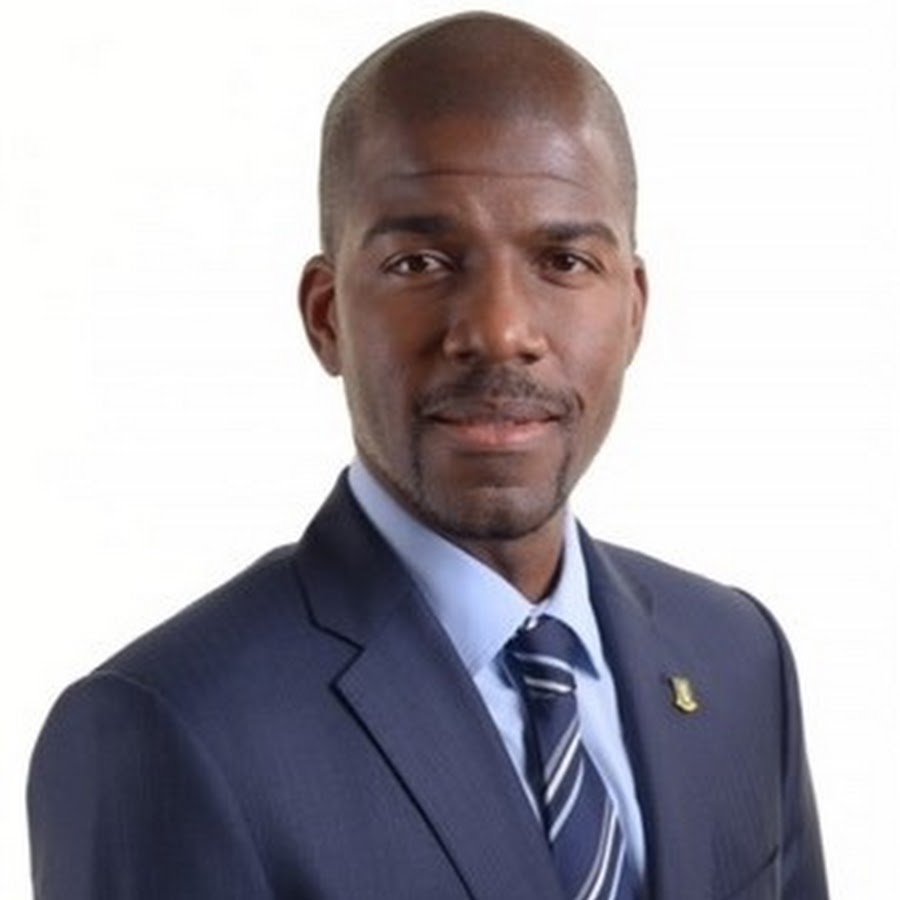
By Benito Wheatley
Every year the British Virgin Islands as a post-slavery society commemorates Emancipation in celebration of our freedom as a people. This year marks 190 years.
However, Emancipation today is more than just about celebrating our foreparents freedom from slavery on 1st August 1834. It is also about protecting and preserving the rights we have since gained as a people in our long and continuous struggle for human dignity and the freedom to determine our own destiny.
The ultimate expression of these rights is self-government, which is a fundamental principle of self determination.
The people of the British Virgin Islands have an inalienable right to govern themselves as a national community, as enshrined in the United Nations (UN) Charter. Our foreparents fought hard for self-government to give us the power to build better lives for ourselves, our children, and grandchildren, because Britain had done very little to help their situation over the 116 years following Emancipation, in contrast to the payments made by the British Government to the former slave masters to compensate them for the slaves they previously owned.
After decades of poor economic and social conditions in the British Virgin Islands and the colony’s lack of opportunity, the people organised the Great March of 1949 to protest colonial neglect and to demand self-government.
The protest was successful in pressuring Britain to approve a constitution in 1950 that reconstituted a local legislature (i.e. Legislative Council) and gave the people of the islands the democratic right to elect their own representatives to make laws for the society, and embedded their political right to participate in the governing process through their representatives.
This initial step was followed by the introduction of Ministerial government in 1967 that gave the local Government executive authority for the first time. In 1977, this authority was further expanded by the devolution of the public finance portfolio from the British appointed Governor to the elected government.
The historical record shows that the modern development of the British Virgin Islands came on the back of the tireless efforts of the islands’ political leaders who ensured the provision of modern primary schools in each district, modern comprehensive secondary schools to serve all students, tertiary education at the H. Lavity Stoutt Community College, the granting of scholarships for higher education abroad, a modern hospital to take care of the sick, a road network for vehicular transportation, electricity and running water for modern living, and modern government facilities from which to administer the affairs of the islands, among other things.
This is in stark contrast to the previous era of direct rule by Britain in which there was little progress and the British Virgin Islands became the poorest part of the Federal Colony of the Leeward Islands.
Today there are some members of our community who are dissatisfied with local governance and continue to call for Britain to take over the islands or for the Governor to be granted additional constitutional powers over Ministries for a temporary period. This is wrongheaded and said out of frustration.
They must keep in mind that removing or overriding a democratically elected Government simply because there is dissatisfaction with their performance is incongruent with democratic principles in the Commonwealth and beyond.
Democracy is not perfect anywhere and imperialism is not a cure.
The British Virgin Islands’ path of political change remains elections, which we have proudly practiced uninterrupted since 1950.
Any concerns about the performance of government should be addressed through reform and technical assistance. Not the removal of democracy or colonial impositions.
Those individuals who feel disillusioned must remember that in spite of some errors by various Government Administrations and ongoing challenges in the society, on balance, self-government has delivered much for the people of the British Virgin Islands. We must not forget this or dismiss or downplay the accomplishments of local government, regardless of political affiliation or personal views.
As a people whose ancestors suffered the indignation of slavery and British colonial maltreatment, we must never compromise the freedom we have gained, especially our democratic, political and human rights. Nor should we seek to justify why Britain should have the unilateral authority to take these rights away from us.
The enduring lesson of slavery is that once your freedom is taken away, there is no guarantee if and when it will be given back. No nation, government, people or person should have that power over another people.
We owe it to our foreparents to preserve and protect the freedom we enjoy today that they suffered, endured and fought so hard to gain for our benefit and that of future generations.
As we celebrate this Emancipation season, let us not forget their sacrifice and our responsibility today as a people.
Benito Wheatley is a Continuing Policy Fellow at the Center for Science and Policy (CSaP) at the University of Cambridge. Responses can be sent to benitowheatley@gmail.com.
Health
Karelynne Jimenez, Aiden Thompson Take Top Spots in Environmental Health Contest
International
BVI Urges UK and Other Colonial Powers to Support Self-Determination of Remaining Territories

In a direct appeal to the international community, the British Virgin Islands (BVI) has called on the United Kingdom and other colonial powers to set aside their national interests and support the self-determination of the 17 remaining non-self-governing territories under the mandate of the United Nations Special Committee on Decolonisation (C-24).
Speaking at the UN’s Pacific regional seminar on decolonisation, held in the Timorese capital Dili from 21st to 23rd May, BVI Special Envoy Benito Wheatley urged administering powers to recommit to the principles of decolonisation and support a meaningful pathway to self-government for the remaining territories on the UN’s list.
“We all must work together to make progress on decolonisation,” Mr Wheatley said in his address. “I know it is hard to separate national interests from the process, but an effort must at least be made to work in the best interest of Non-Self-Governing Territories.”
He added that the Special Committee should prioritise the dispatch of visiting missions “where this is practicable,” noting that “the politics of the process is very complicated and requires dialogue, but no effort should be spared.”
The BVI, which hosted a UN visiting mission in August 2024, was recognised in the mission’s report for its advancement toward full internal self-government. The mission also recommended the establishment of a timetable for the Territory’s eventual independence.
Mr Wheatley expressed appreciation for the UN’s engagement and reiterated the Territory’s commitment to good governance and democratic reform. He also used the opportunity to highlight the broader need for sustainable development assistance, particularly in the face of growing climate threats.
“To truly advance self-determination, UN agencies must play a more active role in supporting the development priorities of these Territories,” Mr Wheatley stated. He urged the C-24 to adopt a resolution at its upcoming June session that would allow UN agencies to utilise their regular programme budgets to support Territories classified as Small Island Developing States (SIDS), especially those that are associate members of regional commissions such as ECLAC and ESCAP.
In a firm message to London, Mr Wheatley also called on the United Kingdom to formally withdraw the Order in Council currently held in reserve, which grants it the power to suspend the BVI’s constitution and impose direct rule if triggered.
“There is no longer an excuse for the UK to maintain this unnecessary, undemocratic and blunt colonial instrument over the Territory,” he said, noting that the BVI had completed the governance reform programme agreed in 2022.
The UN’s list of territories yet to be decolonised includes American Samoa, Anguilla, Bermuda, the British Virgin Islands, Cayman Islands, Falkland Islands, French Polynesia, Gibraltar, Guam, Montserrat, New Caledonia, Pitcairn, Saint Helena, Tokelau, Turks and Caicos Islands, the United States Virgin Islands, and Western Sahara.
The seminar in Dili marks a continuation of the UN’s longstanding commitment to decolonisation — a process that remains incomplete nearly eight decades after the adoption of the UN Charter.
Entertainment
Neil Frett Named Honouree as 71st Virgin Islands Emancipation Festival Officially Launched
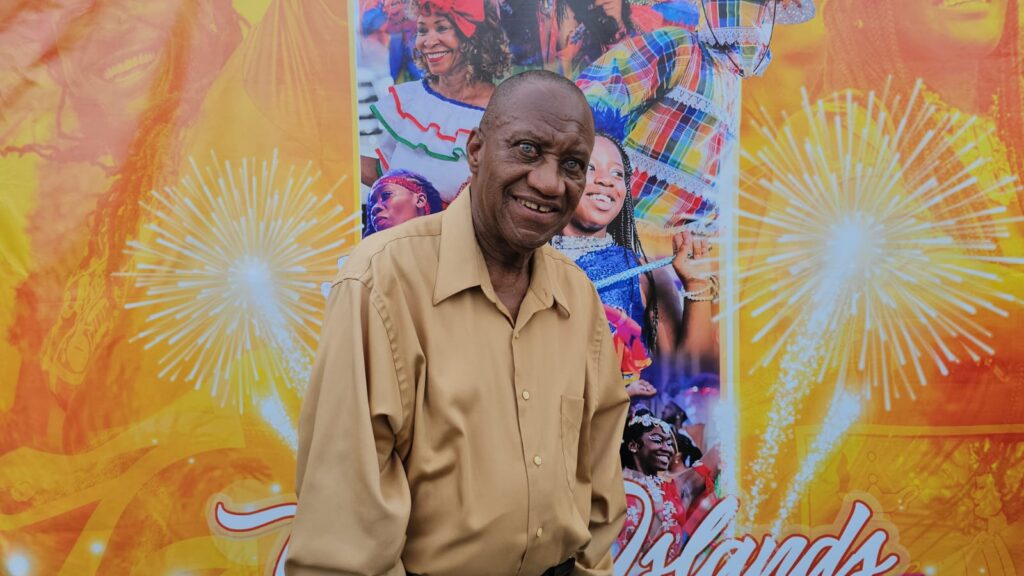
Mr Neil Frett
Chair Natalie Penn-Lake Emphasises Culture, History, and Inclusivity
The 71st annual Virgin Islands Emancipation Festival was officially launched today, May 30, heralding a month-long celebration under the theme “Uniting Our Culture, Freedom, and Joy in the Virgin Islands for Festival 2025.” The winning slogan by Jacob Edwards, “Embrace the Past, Let Unity Thrive, as we Celebrate Our Culture at Festival 2025,” encapsulates the spirit of this year’s events—centred on reflection, unity, and cultural pride.
This year’s honouree, Mr Neil Frett, was announced during the launch ceremony. Frett is being recognised for his longstanding commitment to Virgin Islands culture and heritage, particularly through his contributions to community and the arts.
Newly appointed Chair of the VI Festivals and Fairs Committee, Mrs Natalie Penn-Lake, brings a clear vision to the celebrations—one that prioritises cultural awareness, education for the youth, and community engagement.
“We’re excited about what this year’s festivities will bring,” said Mrs Penn-Lake. “We are more interested in also community being safe, bringing more togetherness, more cultural activities. You will see that in the line-up this year, where we have a lot more inclusivity of Virgin Islands history and country culture, so our young people understand where we were, where we are now, and where we are going.”
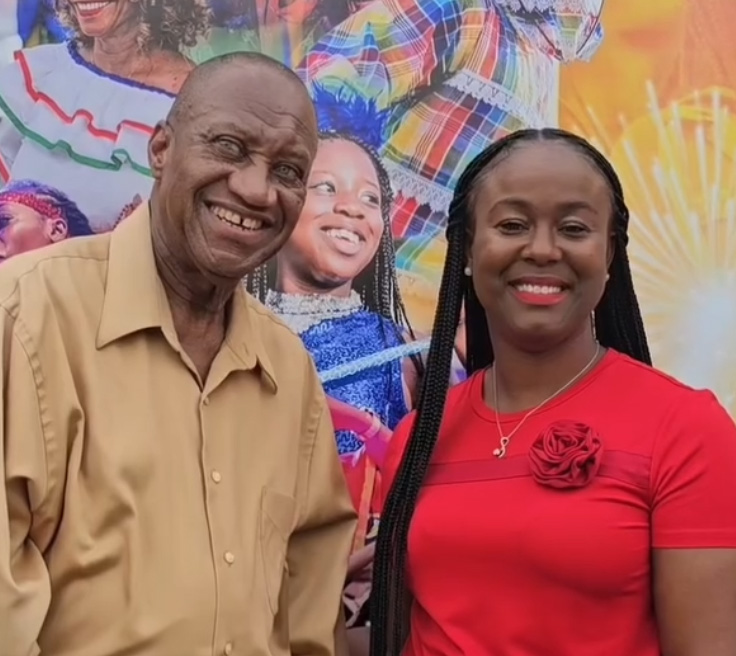
Mr. Neil Frett and Mrs Natalie Penn-Lake
With a professional background in tourism and education, Penn-Lake is keen to use the Festival as a teaching tool. “Understanding our history and our culture is very important, because the only way you can move forward is to know where you came from,” she explained. She added that she often challenges students with cultural trivia in schools to strengthen their knowledge, particularly for situations where visitors may ask questions about Virgin Islands history.
The Emancipation Festival officially begins on 13th July and concludes on 9th August, with activities scheduled across Road Town, East End, and Carrot Bay. “Eastern will have two days of activities. Carrot Bay will have three days,” Mrs Penn-Lake confirmed. “We’re inviting everybody to come out, support, have a great time, be safe, be happy, and let’s just make this Festival a great one.”

Jacob Edwards and Mrs. Briana Henley-Mather
The festival schedule features major cultural staples such as the Miss BVI Pageant (13th July), the Torchlight Procession and Festival Village Opening (25th July), Kiddies Fiesta, Latin Music Night, Calypso Show, and Soca Monarch. Traditional events such as the Rise & Shine Tramp and Jouvert in East End, the Grand Parade, and cultural showcases in Carrot Bay also remain integral to the line-up.
Those abroad and in the diaspora are being encouraged to plan their visit early. “You can plan your trip now. We want you to come home—come home, come home!” Mrs Penn-Lake urged. Details of the full entertainment schedule and artist line-up are being shared via the official Virgin Islands Festival Facebook page (@virginislandsfestival).
The Virgin Islands Emancipation Festival continues to honour the legacy of freedom and resilience, while celebrating the territory’s rich heritage through music, pageantry, food, and community spirit.

ADVERTISEMENT:

-

 Local News2 weeks ago
Local News2 weeks agoControversial 3-Point Call Proven a 4, But Result Stands: Team USVI Withdraws from Third-Place Match
-

 Uncategorized1 day ago
Uncategorized1 day agoBritish Virgin Islands Regulators Move to Wind Down Bank of Asia (BVI) Limited
-

 Entertainment20 hours ago
Entertainment20 hours agoNeil Frett Named Honouree as 71st Virgin Islands Emancipation Festival Officially Launched
-

 Entertainment1 week ago
Entertainment1 week agoFive Students to Compete in Mr. & Miss HLSCC Pageant on June 1
-

 Local News1 day ago
Local News1 day agoBVI U19 Rugby Squad Departs for Dominican Republic Development Tour
-

 Uncategorized5 days ago
Uncategorized5 days agoChantel Malone Leaps to First Place Amid Headwinds at Tucson Elite Classic:
-
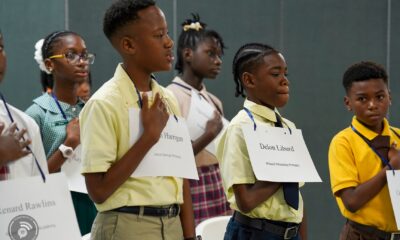
 Education2 days ago
Education2 days agoTwelve Primary Schools Advance to Final Round of 2025 Spelling Bee
-

 Uncategorized19 hours ago
Uncategorized19 hours agoLiburd and Croal Break BVI National Records at NCAA Championships








